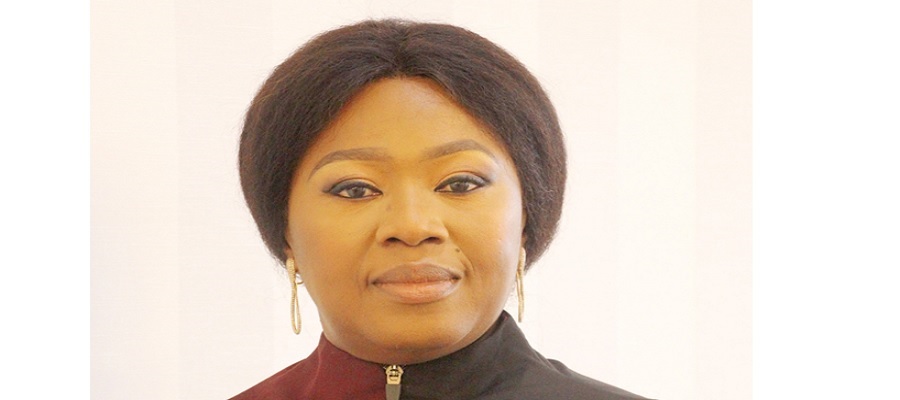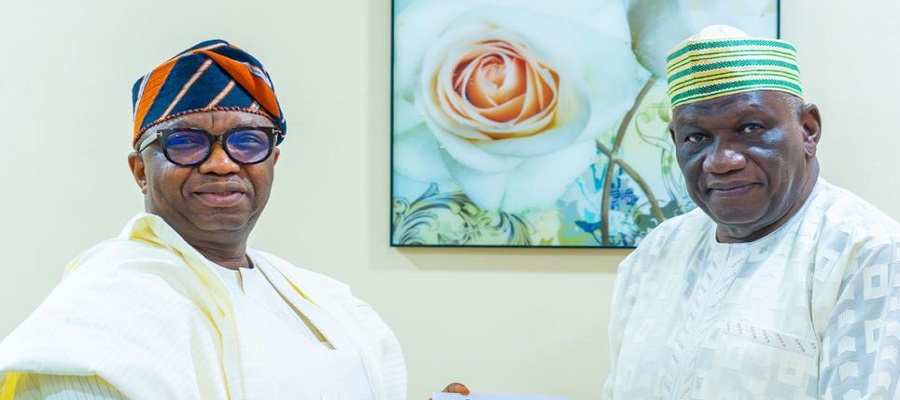E-Business
Journalist Develops Ticketing App for Rail

Abdulganiyu Alabi, a Kaduna based journalist, has designed an e-ticketing application ‘Trainwise’ which can allow passengers book their tickets from their phones.

The app works for the Abuja/Kaduna and Lagos/Ibadan Standard Gauge lines.
Alabi, who reports for The Guardian newspapers, said the App will help check ticket racketeering and relieve travellers the stress of queuing before obtaining a ticket since they can buy from home or anywhere on their phones with internet connection.
He added that the App will help train stations automate booking process and make them more transparent.
The journalist urged the Nigeria Railway Corporation (NRC) to adopt the app, saying it can solve about 80 per cent of problems faced at the stations.
He said: “I joined other journalists to report happenings at the stations and I felt I can solve this problem with my computer knowledge. I can guarantee that if the App is adopted, users will enjoy it.
“Luckily, my journalism practice helped me a lot because I was able to understand the pain of train users. Before designing the App, I had to embark on research and visit the train stations to observe things happening there.
“The Kaduna/Abuja line, which has been functioning for more than two years, lacks an e-ticketing app, and passengers lament the difficulties they encounter before securing tickets. The hardship is just too much. That was why I decided that as a solution-based journalist, there is need for me to go beyond reporting and start making things happen with the knowledge in my possession.
“The app, when adopted by the NRC, will relieve people of the stress they go through to obtain tickets. With the app in place, no more ticket racketeering.
“You can book for train at home or anywhere at the stipulated time and the moment you reach the station, all you need to do is to show the ticket you purchased to an attendant for QR code scanning and they allow you in.
“And there is no way you can enter with fake ticket because the QR scanner captures all your bio data.”
E-Business
We Are Bringing the Change Technology Distribution – Chioma Ekeh, TD Africa MD

In the world of technology and entrepreneurship, few names resonate as powerfully as Mrs. Chioma Ekeh, CEO of TD Africa, Africa’s leading technology distribution powerhouse.

Mrs. Chioma Ekeh, CEO of TD Africa
A media-reclusive entrepreneur and quiet achiever, she has made a name for herself not with loud proclamations but through consistent actions that have shaped the trajectory of the continent’s digital economy.
She has steered the company to unprecedented heights, forging strategic partnerships with global giants such as HP, Microsoft, Apple, Starlink, IBM, Dell Technologies, Ring (by Amazon), Cisco, Lenovo, APC by Schneider Electric, Samsung, Bosch, Philips, Logitech, and Vivo.
These collaborations have not only strengthened TD Africa’s position as a market leader but have also contributed to the growth of Africa’s tech ecosystem.
At the recently held Accra Synergy Summit, a high-profile event held in Ghana that brought together top strategic partners and Original Equipment Manufacturers (OEMs), Mrs Ekeh made a bold declaration: “We are no longer waiting for change — we are driving it. We are no longer spectators in the digital revolution — we are architects, engineers, and visionaries shaping the future.” This statement, emblematic of her visionary leadership, underscores her commitment to driving Africa’s tech renaissance.
Ekeh’s words are not mere rhetoric; they are backed by tangible achievements and a deep understanding of Africa’s digital potential. The data speaks for itself.
According to the International Finance Corporation (IFC), Africa’s digital economy is on track to reach $180 billion this year, with projections indicating it will soar to an astonishing $712 billion by 2050.
This growth is not just an increase in numbers — it signifies a paradigm shift in how Africa engages with technology and innovation.
With over 570 million internet users today, Africa is undergoing an unprecedented digital awakening, a number expected to double by 2030 according to the World Bank.
From financial inclusion to business automation, Africa is embracing the digital age at an accelerated pace, with 70% of global mobile money transactions already occurring in sub-Saharan Africa.
This widespread adoption is a testament to the ingenuity and resilience of African entrepreneurs and businesses.
The continent’s tech ecosystem is also attracting significant global attention. In 2022 alone, African tech startups secured over $6.5 billion in investments, a clear testament to the world’s belief in Africa’s digital future.
Ekeh’s message is clear: Africa’s future is bright but requires collective effort.
Rapid transformation does not happen in a vacuum. It is built on strategic collaborations and forward-thinking leadership.
According to Ekeh, “This renaissance is not happening in isolation. It is built on the foundation of strong partnerships. It is fuelled by collaboration — between businesses, governments, and technology enablers like TD Africa. Each of us has a role to play in ensuring that Africa doesn’t just adopt technology but creates, innovates, and leads.”
Her words serve as a rallying cry for businesses, governments, and individuals to strengthen partnerships, increase investments, and take bold steps toward excellence. “Africa is no longer just a consumer of technology. Africa is a builder. Africa is no longer following global trends. Africa is setting them. Africa is no longer waiting for the future. Africa is the future,” she concluded.
Chioma Ekeh’s leadership and vision are a testament to what can be achieved when passion, innovation, and collaboration come together.
As Africa continues its journey toward a tech-driven future, her words and actions remind us that the power to shape tomorrow lies in our hands today.
TD Africa has remained at the forefront of Africa’s tech revolution as the market leader in technology distribution.
Under Ekeh’s leadership, the company has not only expanded its portfolio of global partners but has also facilitated the seamless deployment of innovative tech solutions across various sectors.
By empowering businesses with cutting-edge technology, TD Africa is laying the groundwork for an Africa that does not just consume technology but pioneers it.
E-Business
Visa Eyes $1.3 Trillion Digital Opportunity in Africa

Africa’s digital payments landscape holds immense potential, with $1.3 trillion in cash transactions across the continent yet to be digitized.

This is according to Visa, which provided insights on the digital payments landscape in Sub-Saharan Africa during the Visa Security CEMEA Summit, held in Cape Town on Tuesday.
Aida Diarra, senior vice president and head of Sub-Saharan Africa at Visa, said that cash-based economic activities present a significant opportunity for merchants and consumers to digitise their operations, creating a multiplier effect to drive financial inclusion and economic development.
Diarra attributes Africa’s continued use of cash to various factors, primarily the restricted availability of digital payments, which impacts over 200 million people across the continent.
The primary factor holding back adoption is access, she said. “Technology is now offering us the possibility to better drive the access. We can now embed a card credential into a wallet to make a payment from your phone.”
She added that the recent increase in reach of such solutions has led to an acceleration of digitised payments. “There is a 20% growth, year-on-year, of digital payments and it’s driven by that (improved reach).
In addition to improving access, there’s a need to improve acceptance of digital payments too.
“In order to pay, you need to have merchants that accept payments, and here again, technology is a phenomenal driver; look at the merchant’s ability to use their phone as an acceptance device.”
According to Visa, only eight million merchants on the continent accept digital payments, with 44 million still not heeding the call to transition to digital payments.
Diarra said Africa accounts for 70% of mobile money globally and players such as Fintechs, mobile network operators, micro-lenders, and e-commerce players are pushing the continent’s mobile first agenda.
When it comes to alternative digital payments solutions like cryptocurrency, she says the big African markets will have the first mover advantage because of the landscape they operate on, with markets like South Africa, Kenya, and Nigeria already leading the pack in cryptocurrency usage, not only in Africa, but globally. She optimistically notes that because of the opportunity technology presents, other markets have room to leapfrog.
She explains: “A few years back, looking at landlines and the numbers of households that did not have access, and then with mobile telephony coming, we went past that and created further access.
“The big economies will probably lead the (cryptocurrency) charge. With this, cost comes down, technology becomes nimbler, and adoption would be accelerating in other markets.”
Because of the DNA of the ecosystem in some markets and challenges to access hard currency, crypto is leveraged in these markets to issue and make payments, Diarra said.
“This is something we need to continue to monitor, and that is likely to continue to grow. The good news is that regulators are beginning to appreciate this is a trend that’s here to stay, and that there needs to be proper rules and frameworks to make sure that they fully have visibility and continue to enable the use of such capabilities,” she concludes.
E-Business
NDPC Secures NJI’s Support for Data Privacy Rights in Nigeria

Nigeria Data Protection Commission (NDPC) has secured the support of the National Judicial Institute (NJI), in line with its objective of safeguarding the data privacy rights of Nigerians.

Dr. Vincent Olatunji, national commissioner and CEO, NDPC Hon. Justice Salisu Garba Abdullahi (Rtd) of NJI
This was contained in a press statement signed by Mr Itunu Dosekun, head of Media, NDPC, and made available to journalists in Abuja, the nation’s capital.
NJI is a government institution responsible for the training of judicial officers in Nigeria, from magistrate courts to the Supreme Court of Nigeria.
During a courtesy visit by the Commission to NJI, Dr. Vincent Olatunji, national commissioner and CEO, NDPC, lauded the management of NJI under the leadership of Hon. Justice Salisu Garba Abdullahi (Rtd) for the milestones the Institute has achieved in human capital development, particularly for judicial officers and fellows of the Institute.
While commenting on the importance of the Nigeria Data Protection Act in the face of disruptive technologies, Dr Olatunji reiterated the need to collaborate with NJI in keeping judicial officers abreast of privacy jurisprudence.
He noted that decisions on the enjoyment of data privacy rights concerning one citizen have fundamental implications for all citizens.
“It is the digital age, and the protection of the privacy of all citizens worldwide is paramount.
“It is now the right of all citizens to have their privacy protected. This is why countries across the globe are putting adequate measures in place to ensure enforceable data protection rights, as well as establishing data protection authorities to enforce data protection laws,” Dr Olatunji stated.
In his response, Justice Abdullahi commended the NDPC, under Dr Olatunji’s leadership, for its significant achievements since its establishment.
He pledged to collaborate with the NDPC to raise awareness of data protection and privacy within the judiciary and accepted the NDPC’s proposal, anchored on capacity building for judges, NJI fellows, and employees.
“The issue of data protection is very important. It is new, and judges need to be trained. The first step we should take is to review the Act (NDP Act) that established the Commission. Additionally, there is a need for us to train our fellows on data protection.”
NJI and NDPC have put in place a technical working group that will draw up a work plan and coordinate the initiatives for capacity building. The working group is expected to report back within days to commence implementation.

 Telecom2 days ago
Telecom2 days agoSpaceSail, Kuiper Battle Starlink for Souls of Customers

 E-Financial2 days ago
E-Financial2 days agoAfDB, Standard Bank Unite to Support SMMEs and Boost Trade

 News2 days ago
News2 days agoTD Africa’s Accra Synergy Summit to Ignite Tech Transformation in Ghana

 News2 days ago
News2 days agoFuel Scarcity Looms as Marketers Threaten Strike over N100Bn Debt

 Broadcasting2 days ago
Broadcasting2 days agoMultiChoice Announces Fresh Price Hike for DStv, GOtv Packages

 News2 days ago
News2 days agoNigeria’s Zuriel Oduwole Nominated for 2025 Nobel Peace Prize

 E-Business2 days ago
E-Business2 days agoGmail to Replace SMS Codes with QR Authentication

 Telecom2 days ago
Telecom2 days agoSmartcash PSB Wins Outstanding Payment Service Bank at New Telegraph Awards

















